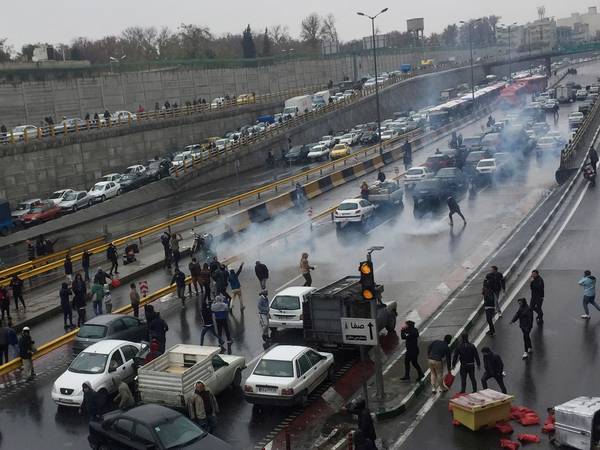A prominent sociologist in Tehran says Iranians have lost faith in the left and right wings of the Islamic regime, but despite the disillusionment, the collapse of the system is unlikely.
Taghi Azad Armaki, a Tehran University academic argued in an interview that “the Iranian society has made a decision to disengage from the country's political system, preferring to pursue their own paths. Armaki argued that activists should not wait for the system's collapse or a potential war.”
Armaki pointed out that the new generation of Iranians primarily seeks a simple and peaceful life, devoid of political entanglements. He noted the widespread apathy towards political developments, including the upcoming elections in Iran, as people from various backgrounds and political affiliations have tirelessly strived for change over the past century, only to become disillusioned with politicians. The younger generation, in particular, tends to disregard political matters and the government altogether.
He clarified, "It is not that the Iranian society is indifferent. The issue is that the people want nothing to do with the government. Armaki attributed this disillusionment to various factors, including the perceived absurdity of elections, such as the Assembly of Experts election, where President Ebrahim Raisi is the sole candidate for his constituency and can secure a seat with just his own vote.
Reformist journalist and political activist Ahmad Zeidabadi echoed these sentiments, questioning the legitimacy of elections where a candidate can be elected with a single vote they cast themselves. "When Ebrahim Raisi can be elected to the Assembly of Experts with only one vote to represent the Southern Khorasan Province, based on what definition this can be called an election?” Zeidabadi emphasized the financial burden of such elections on the people and the futility of holding elections when the ultimate decision-making power remains outside the public's reach.
Armaki also noted that his generation was willing to take up arms against the political system before the 1979 revolution, whereas the Generation Z participants in the nationwide protests of 2022 did not entertain the idea of armed struggle.
He further highlighted that previous high voter turnouts had created an illusion of popularity among government insiders. However, recent elections with significantly lower turnout rates indicate that voters are not supporting specific candidates or political groups but seeking substantial change.
Armaki, like other academics such as Mohammad Ghasim Osmani, emphasized the growing disconnect between the Iranian people and the government. While the society still exists, it has disengaged from the government, reflecting a sense of hopelessness rather than despair. The government, on the other hand, has isolated itself within its own circles.
Referring to the current government, Armaki said: "Raisi has gathered a group of illiterate youngsters around himself. It is good to have young officials, but these officials should be able to bring about change.”
Armaki also commented on the situation of female lawmakers in the Iranian parliament, noting that they may appear as women, but often express views aligned with hardliner male counterparts. He questioned the government's emphasis on encouraging more children when it comes at a high cost. Additionally, he lamented the sight of young Iranians unable to care for their elderly relatives due to financial constraints.
Some other Iranian academics have taken a more radical stance on the situation in Iran. Bijan Abdolkarimi has even declared the Islamic revolution dead. He has criticized the government for attempting to address modern problems with outdated seminary knowledge and for lacking an understanding of freedom, leading to a dangerous widening gap between the people and the government.
